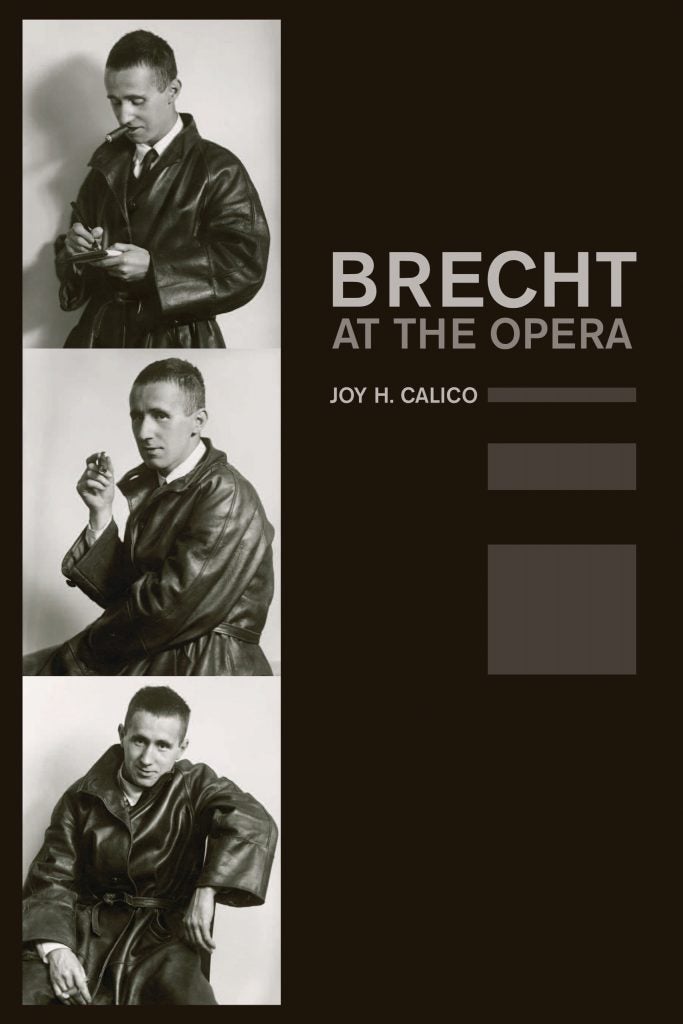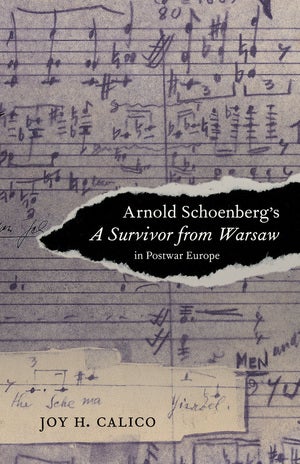Joy H. Calico, a musicologist whose groundbreaking scholarly work on twentieth-century European music has frequently challenged received wisdom, will join The UCLA Herb Alpert School of Music.
“I look forward to working with the excellent graduate students in musicology and collaborating with new colleagues in the School of Music and across campus, such as librarians like Matthew Vest,” said Calico. “The Hugo and Christine Davise Fund for Contemporary Music is an extraordinary resource for those of us working on new music as well.”
Calico was formerly University Distinguished Professor of Musicology and German Studies and Cornelius Vanderbilt Professor of Music at Vanderbilt University. Her research has been supported by the Radcliffe Institute for Advanced Study, the American Council of Learned Societies, the National Endowment for the Humanities, and the American Academy in Berlin, among others.
Her scholarly impact, however, goes much further than her impressive publication record.
“Joy Calico’s commitment to the professional development of junior faculty and scholars—and especially of BIPOC and underrepresented scholars—is palpable,” said Cesar Favila, assistant professor of musicology.
This commitment is evident in Calico’s work with the Black Opera Research Network, editorship of the Journal of the American Musicological Society, and support of the FirstGen Program as an incoming series editor for the University of California Press.
“Joy Calico is one of the world’s leading scholars of contemporary opera,” said Nina Eidsheim, professor of musicology. “She is doing tremendously important work in understanding opera in a colonial and racialized context.”
For Calico, the move to Los Angeles offers intriguing possibilities.
“Moving from one music city to another, especially in the sense of Nashville and Los Angeles’s commercial music scene, gives it some continuity,” said Calico. “But if you had told me ten years ago that Los Angeles would be the center of such an exciting new opera scene, I don’t think I would have believed it.”
Calico’s first book, Brecht at the Opera, offered a striking reinterpretation of the role that opera played in Bertolt Brecht’s thinking. The book was hailed as an exemplar of the “new Musicology,” a work that was deliberately inter-disciplinary in approach. Combining performance studies with cultural history and music theory, Calico found that Brecht’s engagement with opera had a profound impact on his own aesthetic theory. In a twist, she also argued that Brecht’s theories in turn influenced postwar opera.

Remarkably, Calico’s first book was not a retread of her dissertation.
“I wrote my dissertation on opera in postwar East Germany,” said Calico. “It was the 1990s, the wall had just come down, and it was very easy to get funding to study in the former German Democratic Republic, in eastern Germany. And it was an exciting subject.”
The subject, however, proved too niche for academic presses. As Calico thought through her project, she got an idea.
“Brecht ended up in East Germany. And he had worked through his ideas of audience engagement and estrangement there, too, at least partially,” said Calico. “So I began retooling my dissertation backwards, chronologically.”
Brecht always had a fraught relationship with opera. It turned out to be an invigorating framework.
Calico’s award-winning second book treats the post-World War II Europe’s cultural reception of Arnold Schoenberg’s A Survivor from Warsaw, which Schoenberg completed in Los Angeles in 1947. Calico carried her signature multi-disciplinary style with her into the project, which explored the reception of Schoenberg’s controversial cantata memorializing the Holocaust.

It was a complicated historical moment. Physically devastated by war and spiritually wrecked by the Holocaust, European reactions varied significantly. Calico’s comparative analysis of reactions in West Germany, Norway, Austria, East Germany, Czechoslovakia, and Poland exposed postwar anxieties about culpability, remigration, lingering anti-Semitism, and Allied occupation.
“It is an extraordinary book,” said Mark Kligman, the director of the Lowell Milken Center for Music of American Jewish Experience. “Here was one of the twentieth-century’s most important composers writing about one of the twentieth century’s most traumatic events, and within a few years of its occurrence. But what made her book so innovative was how she treated the work’s reception in the 1960s and 70s, well after its composition. It was a sensitive and nuanced cultural history.”
Calico’s newest project seeks to develop a theory of opera since 1905 through scene types—death scenes, love scenes, travel scenes, and so on. This promises a major shift in reading opera in the period. Most work on twentieth- and twenty-first-century opera has focused on a single opera or a body of repertoire in a single idiom (minimalism, Expressionism, neo-Romanticism), often focusing on one composer. And, indeed, Calico began her own project in the same vein, studying the scores of Finnish composer Kaija Saariaho.
She was already publishing on the subject when a classroom encounter brought an epiphany. She was teaching Lost Highway, Olga Neuwirth’s 2003 opera adaptation of the David Lynch film, which is post-tonal and always a struggle for singers, especially if they don’t have perfect pitch.
“There’s a scene in that opera where a character named Mr. Eddy just goes off on somebody, and Neuwirth writes it using an extreme vocal style,” said Calico. “The students just didn’t know what to do with it. Desperate, I said to them, ‘Doesn’t any of this remind you of Lucia’s ‘mad scene’ from Donizetti’s Lucia di Lammermoor?’”
The connection was like a thunderbolt. A “mad scene” is often made legible through extreme vocalism, and that trait connected nineteenth- and twenty-first-century opera. Intrigued, she began to examine other scene types and their relationship with one another. The more she researched, the more compelling connections she found. It also promises a new method for approaching contemporary opera.
For Calico, it was gratifying that the epiphany came while teaching.
“In his first book, Theory of Harmony, Arnold Schoenberg opens by saying he has learned everything in the book from his students. It’s humbling, but it’s often true,” said Calico. “I learned so much from my students at Vanderbilt, and I’m looking forward to learning with new students at UCLA.”


